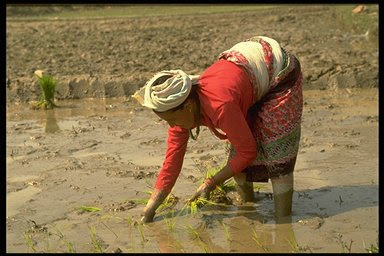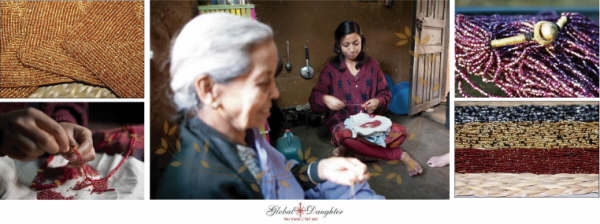
38% percent of the population are below the poverty line and Nepal has the highest maternal death rate among all of the South Asian countries. In general, women in Nepal have remained economically poor as a result of their traditional social values, superstition, poverty and lack of knowledge. Women must live in their husband's home after marriage where their rights are limited. Women also do not have access to property, despite the hard work they put into its keeping and maintenance. Instead they are pressured to give birth to healthy sons, though they are ironically deprived of nutritious food and appropriate care during pregnancy. In reality, women do not have free control over decisions on matters related to their own bodies. The timing and spacing of pregnancies are often not up to them, and they do not have free reign over decision-making with regard to child birth, nor the selection of nutritious food, nor appropriate rest. They are often deprived of safe motherhood services and they do not have access to family planning methods.
The dowry system in Nepal is motivation for families to have more male children despite their ability to financially care for them. In this system, a boys family recieves a dowry, in the form of money, property, animals, etc, whereas the family of the girl has to give these marriage gifts.If a girl's family does not offer enough money or gold in the dowry upon marriage, some new brides are beat by their in-laws and their new husband. Some husbands will throw burning acid in the face of their new bride as punishment for small dowry gifts. Acid is a favorite weapon of violent and abusive men in backward villages in the country. Some in-laws will starve their new daughter-in-law and beat and mentally abuse her. We see stories in the paper daily about violence or injustices against women.
85% of country’s population survives on agriculture in villages where the human development indicator is very low. Most of the women living in the rural settings have many different responsibilities including looking after the household, cutting wood, fetching water, washing dishes and clothes, cooking, farming, looking after the animals, taking care of children, etc. For this work they recieve no monetary compensation. Their work day can be as long as 16 hours, in some cases more. Their husbands, however, average about 8 hours of work a day, with compensation. The old addage, "A woman's work is never done," could not be truer than in Nepal.
With a lack of education, some young girls have no other option than to become some man's wife at an early age and start producing children. Their future is mapped out for them by their parents; their husband is arranged, their living arrangements with their husband's parents is arranged, and their reproductive cycle is closely followed to arrange for children. Free will for women does not exist here as it does in Western cultures.
Girls are often seen as a burden and put to work at early ages. If a family has many children and not enough money to send them all to school, the parents will forfeit their daughter's education so that their sons can be educated. They see the boy as more of an asset than the girl. So the girl remains illiterate and on some occasions, may be sold into sex trafficking in India. It is a nasty cycle that in many villages across Nepal, and is continually being practiced.
We have witnessed these practices in villages in Nepal. To see it with your own eyes makes the statistics jump off the page and become real. It is sad and discouraging, of course, but let us all try to be a part of the solution. Join us in choosing this cause as part of your contribution to future generations of girls in Nepal and the world. We live in a global village and injustice for one is injustice for all.

No comments:
Post a Comment